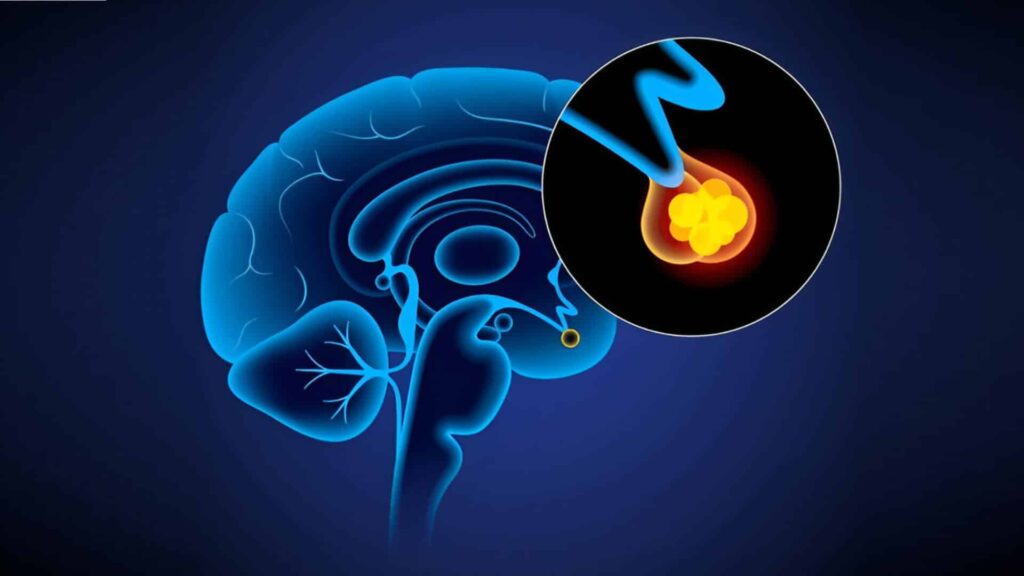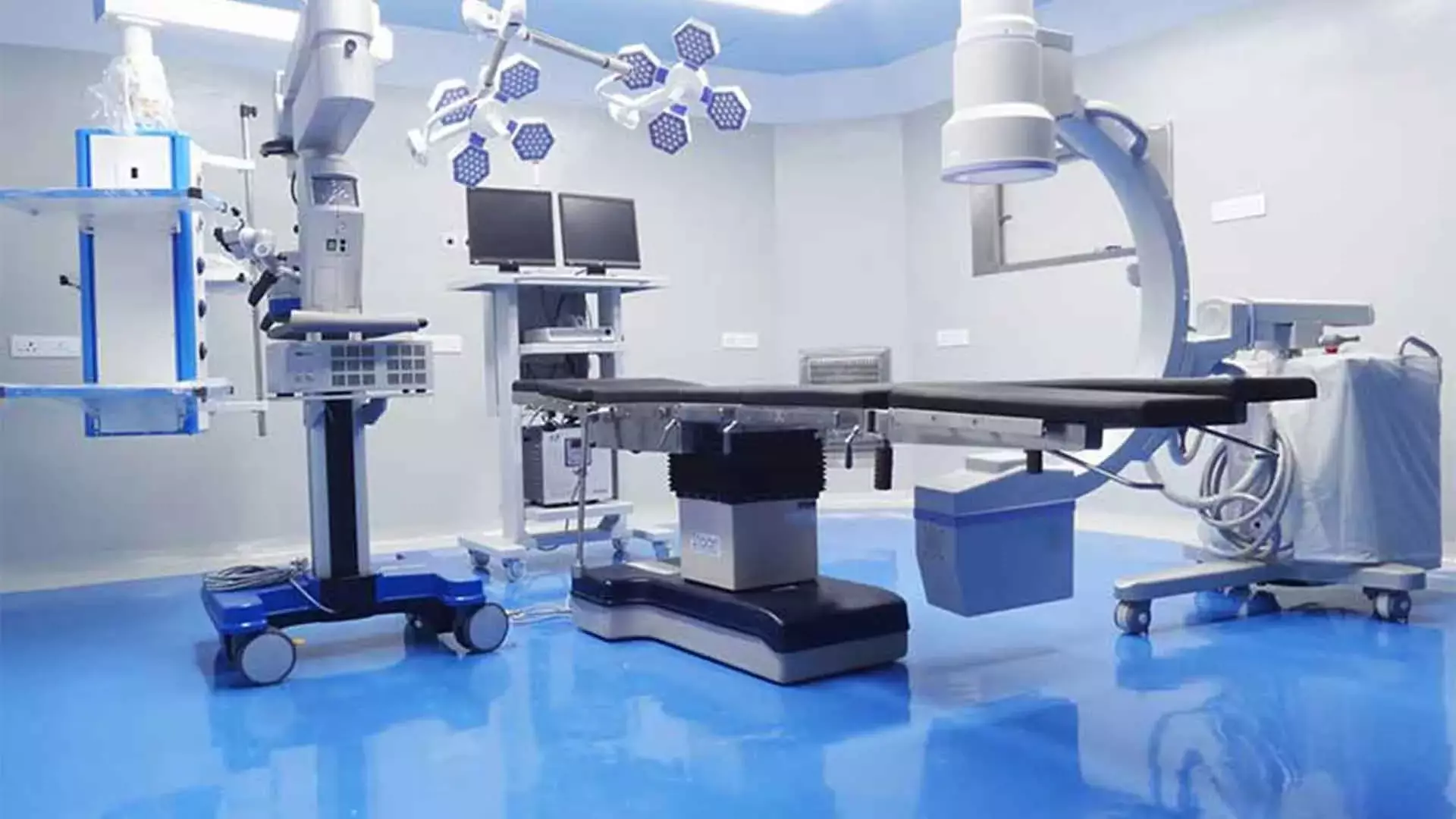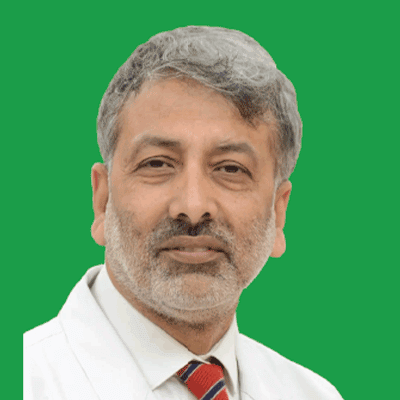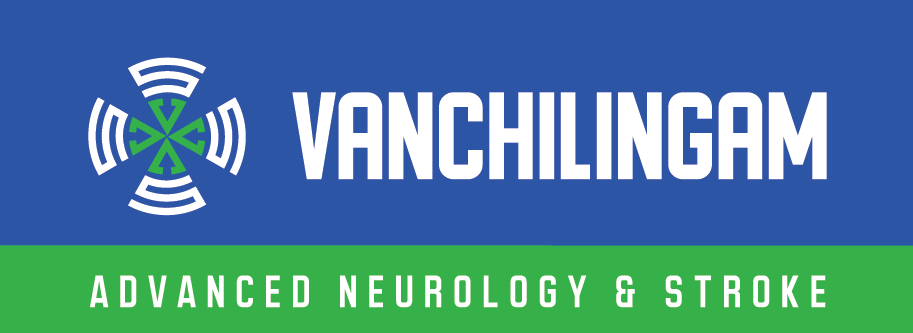Pituitary Tumour Surgery: Minimally Invasive Relief for Hormonal and Vision Issues
Scar-Free Surgical Care at Vanchilingam
- Endoscopic transnasal surgery for safe, scarless tumour removal.
- Effective for non-functioning adenomas and hormone-secreting tumours.
- Restores vision and hormonal balance with minimal recovery time.
- Real-time neuronavigation and multidisciplinary surgical planning.
Pituitary Tumour Surgery: Targeted Removal Through Minimally Invasive Techniques
“Precision surgery through the nasal corridor-no scars, faster healing.”
Pituitary tumours can disrupt critical hormonal functions and cause symptoms that affect vision, energy, and metabolism. At Vanchilingam Advanced Neurology and Stroke Care, we specialize in minimally invasive endoscopic surgery for pituitary tumours, performed through the natural nasal passage. This technique offers high success rates with minimal trauma, no visible scars, and shorter recovery time.
When Is Pituitary Tumour Surgery Needed?
Surgery is typically recommended when:
- The tumour compresses the optic nerves and affects vision
- Hormonal imbalance persists despite medication
- The tumour continues to grow or becomes symptomatic
- A precise diagnosis is needed through tissue biopsy
- There is risk of apoplexy (sudden tumour bleed)

Types of Pituitary Tumours Treated Surgically
- Non-functioning adenomas
- Prolactinomas (when resistant to dopamine agonists)
- Growth hormone–secreting tumours (acromegaly)
- ACTH-producing tumours (Cushing’s disease)
- TSH-secreting tumours
- Craniopharyngiomas and Rathke’s cleft cysts
Surgical Technique: Endoscopic Transnasal Transsphenoidal Approach
This keyhole brain surgery is performed through the nostrils without external incisions. A high-definition endoscope allows the surgeon to visualize and remove the tumour through the sphenoid sinus, accessing the pituitary gland at the skull base.
- No visible scars or large craniotomy
- Shorter operative time and faster recovery
- Real-time visualization of tumour margins
- Preserves normal brain structures and function
See also our Endoscopic Brain Surgery page for broader applications
Advantages of Pituitary Tumour Surgery at Vanchilingam
- Scarless, minimally invasive approach
- Reduced hospital stay (usually 2–3 days)
- Preservation of pituitary function
- Early return to work and daily activities
- Immediate pressure relief on optic nerves
Our Surgical Process
- Preoperative MRI and hormonal profiling
- Collaborative planning with endocrinologists, ENT surgeons, and radiologists
- Neuronavigation and intraoperative endoscopy for precision
- Post-op hormonal monitoring and replacement as needed
- Visual field testing pre and post surgery
Why Choose Vanchilingam for Pituitary Surgery?
- Specialist neurosurgeons with advanced training in endoscopic skull base surgery
- ENT-neurosurgery collaboration for safe transnasal access
- In-house endocrinology team for hormonal management and follow-up
- Cutting-edge imaging and navigation for surgical accuracy
- Dedicated patient counselling for pre- and post-operative expectations
Life After Surgery: What to Expect
- Most patients experience rapid visual improvement and symptom relief
- Short hospitalization and minimal post-op discomfort
- Hormonal recovery is monitored; replacement may be needed in some cases
- Long-term follow-up with endocrinology and imaging ensures lasting outcomes
Minimally Invasive Surgery, Maximum Impact
At Vanchilingam Advanced Neurology and Stroke Care, pituitary tumour surgery is performed with care, accuracy, and the latest technology-restoring hormonal balance, vision, and overall health without major incisions.
Contact us today to schedule a consultation and explore if you are a candidate for endoscopic pituitary tumour surgery.
Meet the Specialists
Our team of dedicated specialists brings years of expertise and a passion for delivering personalized care.
Real Experiences, Real Results
Discover how Dr. Vanchilingam Advanced Neuro & Stroke Hospital has transformed the lives of our patients. Also hear our specialists talk about the services and solutions we offer for various neurological issues.





OUR SPECIALITY
Acute Stroke Unit
The Acute Stroke Unit is an acute neurological ward providing specialist services for people who have had a new suspected stroke. On the Acute Stroke Unit we provide: Thrombolysis treatment -treatment is started in the Emergency Department and you will have the rest of your Treatment and monitoring on the Acute Stroke Unit
OUR SPECIALITY
Advanced Neuro ICU
A neuro ICU is an Intensive Care Unit which is particularly devoted to a high – quality care of patients with the neurological problems that are life-threatening in nature. The neuro ICU of our hospital is a complete state of the art and a full-fledged one designed to provide almost all sorts of advanced neurological care to the normal patients as well as the patients in the emergency.
OUR SPECIALITY
Advanced Neuro Imaging
Our radiology department is a state of the art department with all the necessary infrastructure that is essential for effectively dealing with the neuro and neurosurgery emergencies at its best. The advanced neuroimaging techniques used by our doctors are as discussed below.
OUR SPECIALITY
Neuro interventional Cath Lab
A neuro-interventional Cath lab in a neurodiagnostic Centre is a specialized catheterization laboratory which has all the necessary diagnostic imaging equipment that is particularly used for the purpose of visualization of the arteries, veins and other vascular malformations of the brain and spinal cord.
OUR SPECIALITY
Neuro-Surgery Operating Room
The neurosurgery operating room of Dr.Vanchilingam Hospital, Neurosurgery Hospital is a fully functional and a state of art one that has the adequate infrastructure for effectively carrying out even the most complicated neuro surgeries with ease.
What is pituitary tumour surgery and how is it performed?
Pituitary tumour surgery at our hospital is performed using a minimally invasive endoscopic transnasal approach. This keyhole procedure involves accessing the tumour through the natural nasal passage, without any external incisions. Using a high-definition endoscope and neuronavigation, the tumour is safely removed with minimal trauma and faster recovery.
When is pituitary tumour surgery necessary?
Surgery is generally recommended when the tumour affects vision by compressing the optic nerves, causes hormonal imbalances that do not respond to medication, continues to grow or causes symptoms, or when a tissue biopsy is needed to confirm diagnosis. It is also required in cases with a risk of apoplexy or sudden tumour bleeding.
What types of pituitary tumours are treated surgically?
We treat a range of tumours including non-functioning adenomas, prolactinomas resistant to medication, growth hormone–secreting tumours (acromegaly), ACTH-producing tumours (Cushing’s disease), TSH-secreting tumours, craniopharyngiomas, and Rathke’s cleft cysts.
What are the advantages of minimally invasive pituitary surgery?
The benefits include no visible scars, reduced hospital stay (typically 2–3 days), faster recovery, preservation of pituitary function, and immediate relief of pressure on the optic nerves. Most patients return to daily activities sooner with minimal discomfort.
How is the surgical process planned and executed?
Each case involves preoperative MRI and hormonal profiling, and a multidisciplinary approach including endocrinologists, ENT surgeons, and radiologists. During surgery, neuronavigation and intraoperative endoscopy ensure precision. Post-operative care includes hormonal monitoring, hormone replacement if necessary, and visual field testing.
What results can patients expect after pituitary tumour surgery?
Patients usually experience rapid improvement in vision and symptoms. Post-operative discomfort is minimal, and hospital stays are short. Hormonal function is monitored closely and hormone therapy may be provided as needed. Long-term follow-up ensures lasting recovery.
Why choose Vanchilingam Advanced Neurology and Stroke Care for pituitary surgery?
We offer advanced surgical expertise with a dedicated team of neurosurgeons, ENT specialists, and endocrinologists. With cutting-edge imaging, real-time neuronavigation, and personalized care, we ensure precise surgery and comprehensive recovery support.











